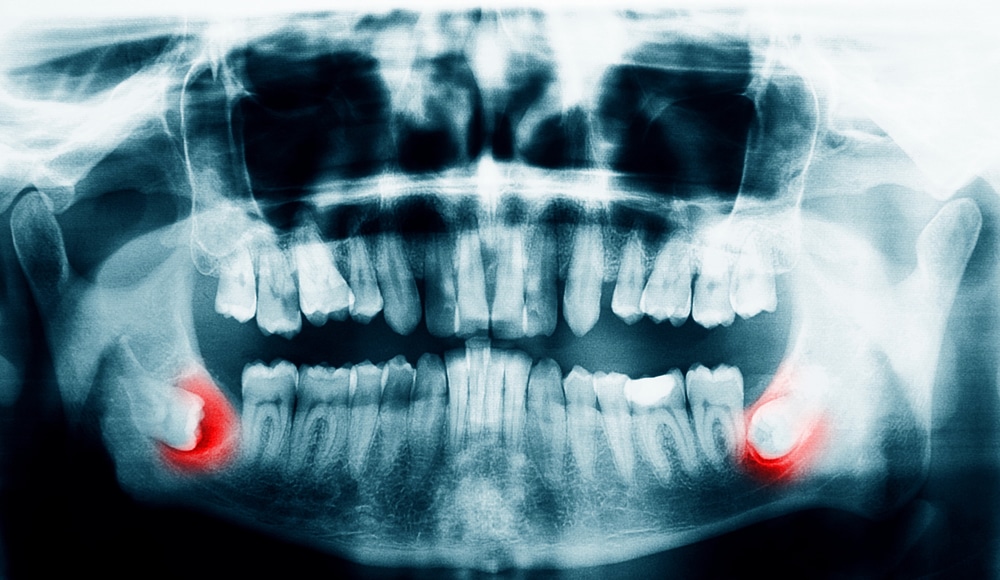Downtown Dental Excellence offers Digital Dental X-Rays in Cleveland, TX
While there are different x-rays available, one form of x-ray technology that has become more popular in the dental field are digital x-rays. These x-rays are able to produce less radiation, while giving the dentist a full picture of what is going on below the surface. Digital x-rays also allow dentists to see images immediately on their screen. They can even share these images with other dentists if additional, specialized treatment is needed.
Choose Downtown Dental Excellence for your Dental needs today.

Digital X-Rays
X-rays are an extremely important part of overall oral health. While a dentist can inspect a patient’s teeth visually, they aren’t able to see every part of your teeth, gums and jawbone without an x-ray. Digital x-rays help to see beneath the surface, and check for:
- Tooth Decay
- Disease
- Bone Loss
- Tumors
- Cysts
- Incorrect Root Positioning
- Issues Inside of a Tooth
- Cracks or Damage to a Tooth or Filling
- Other Irregularities
Digital x-rays also help dentists to plan for:
- Dental Implants
- Braces
- Dentures
X-rays are vital, and are an important tool that help dentists to see the full picture when it comes to the oral health of a patient.
Call Downtown Dental Excellence Today! (281) 592-0597
When and How are They Used?
Digital x-rays are generally done during routine checkups with your dentist. How often you have these digital x-rays done depends on a variety of factors, such as age and health. Your dentist will consider your individual needs, and will recommend how often they believe you should be having your mouth x-rayed.
Another factor is your overall oral health. If you have good oral health, your dentist may not need to x-ray your mouth as often. On the other hand, if you have poor oral health, your dentist may need to x-ray your mouth more often to check and see if your oral health is improving, or getting worse.
Another reason for your dentist to x-ray your mouth is before specialized procedures, or after injuries. If you crack a tooth, your dentist may take an x-ray to see the extent of the damage. Likewise, your dentist may x-ray a tooth that is in pain or may be infected. If you are undergoing certain procedures—like a tooth implant—your dentist will need to x-ray your mouth to check for bone loss, and ensure that your jaw is strong enough to handle the procedure.
Generally, though, digital x-rays are done for routine maintenance, and to ensure your teeth, gums and jaw are healthy.
Are They Safe?
While x-rays do involve a certain level of exposure to radiation, digital x-rays expose patients to a significantly lower amount of radiation. Actually, digital x-rays may produce as much as 80-90% less radiation!
Digital x-rays also create less waste, making them more environmentally friendly.
A lot of parents are justifiably concerned about having digital x-rays taken of their children, because of the radiation that is involved. This is an understandable fear, and your dentist will speak with you in depth about any risks that may be involved, and if digital x-rays are appropriate for your child. It is important to be honest with your dentist about your child’s health history so your dentist can make an informed decision about whether or not to x-ray your child.
Because children have newly developing teeth, there are a variety of reasons that a digital x-ray may be the best option for your child. Some of the reasons for taking digital x-rays of your child’s mouth include:
- Determining if unerupted teeth are missing.
- Ensuring teeth are coming in properly and not damaging other teeth.
- Checking for familial anomalies.
- Diagnosing oral swelling.
- Checking oral health after sports injuries or trauma.
A digital x-ray machine may look intimidating to a child. Your dentist and you may want to explain to your child what the machine does, and that the procedure is pain-free. They may actually be excited to see the digital x-ray of their teeth!
Call Downtown Dental Excellence Today! (281) 592-0597
Different Types of X-Rays
There are actually a few different types of x-rays that are performed—depending on the particular procedure the dentist may need to perform. These include:
Bite-Wing
This allows your dentist to see the lower and upper posterior teeth. Your dentist will be able to see how the teeth touch each other, while also allowing them to check for decay between the back teeth.
Occlusal
Occlusal x-rays allow a dentist to see the bite of the lower or upper jaw, and offer a view of the floor of the mouth. This type of x-ray helps when viewing the development of children’s teeth.
Periapical
With this type of x-ray, a dentist can see the entirety of a tooth, from the bone supporting the tooth to the crown.
Panoramic
With a panoramic x-ray, a dentist can see the teeth, nasal area, jaw and joints of the jaw. These x-rays are helpful when implants are necessary.
Speak with Your Dentist
If you have any concerns about having an x-ray done, make sure to speak with your dentist. Make sure to mention any health issues that you have, if you are pregnant and anything else that you can think of that may be affected by the radiation from an x-ray.
If you haven’t been to the dentist in a while, it’s likely that your dentist will want to x-ray your mouth to see the condition of your oral health.
Make sure to schedule a checkup every six months, and take good care of your oral health. This will decrease the likelihood of having x-rays taken.
X-rays are an extremely common aspect of dentistry, and are nothing to be afraid of. Speak with your dentist about any specific concerns you may have the next time an x-ray is suggested to ensure your oral health.
